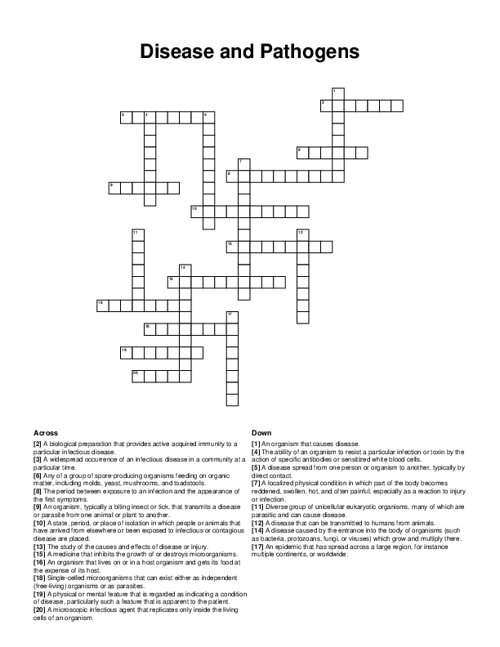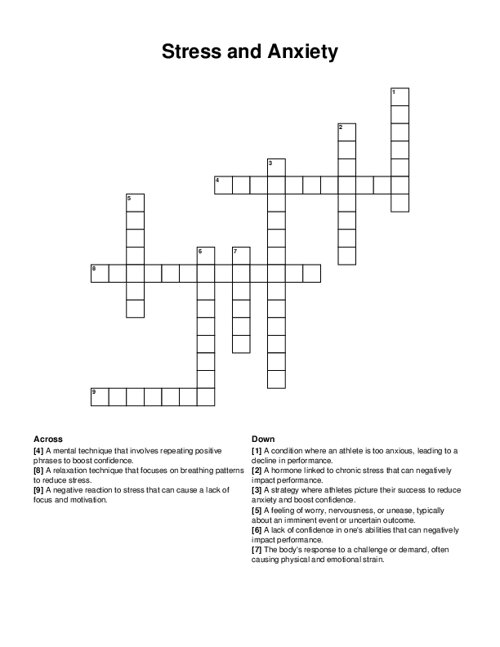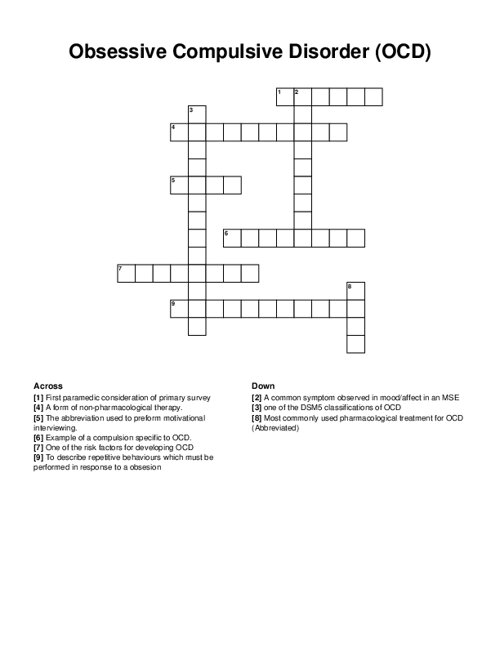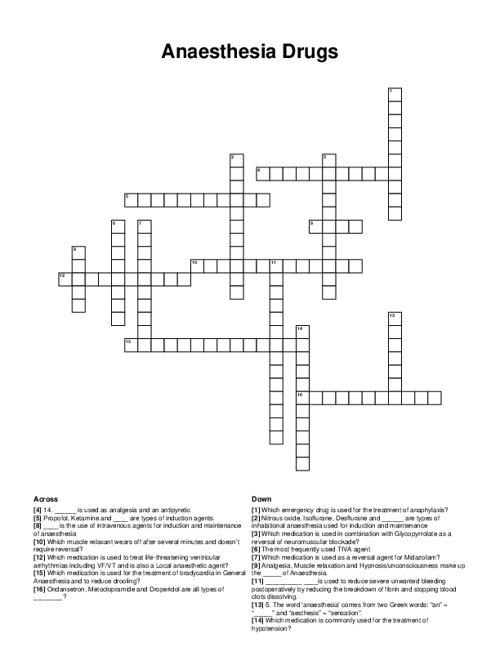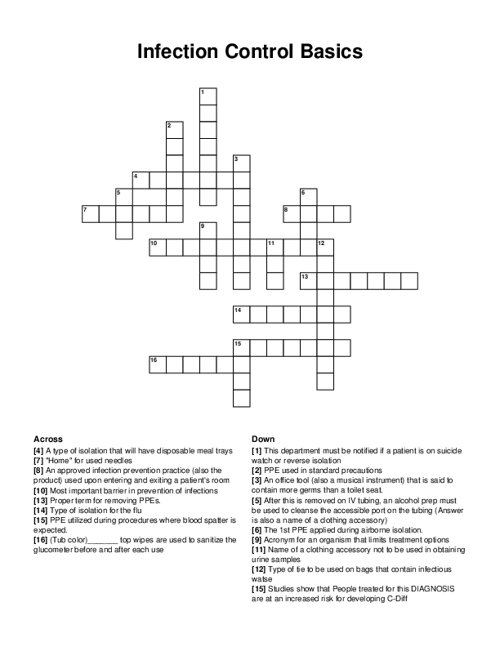Disease and Pathogens Crossword Puzzle
Download and print this Disease and Pathogens crossword puzzle.
Related puzzles:
Browse all Health / Fitness Puzzles
QUESTIONS LIST:
- bacteria: single-celled microorganisms that can exist either as independent (free-living) organisms or as parasites.
- pathology: the study of the causes and effects of disease or injury.
- antibiotic: a medicine that inhibits the growth of or destroys microorganisms.
- parasite: an organism that lives on or in a host organism and gets its food at the expense of its host.
- fungus: any of a group of spore-producing organisms feeding on organic matter, including molds, yeast, mushrooms, and toadstools.
- quarantine: a state, period, or place of isolation in which people or animals that have arrived from elsewhere or been exposed to infectious or contagious disease are placed.
- contagious: a disease spread from one person or organism to another, typically by direct contact.
- virus: a microscopic infectious agent that replicates only inside the living cells of an organism.
- zoonosis: a disease that can be transmitted to humans from animals.
- incubation: the period between exposure to an infection and the appearance of the first symptoms.
- epidemic: a widespread occurrence of an infectious disease in a community at a particular time.
- vector: an organism, typically a biting insect or tick, that transmits a disease or parasite from one animal or plant to another.
- inflammation: a localized physical condition in which part of the body becomes reddened, swollen, hot, and often painful, especially as a reaction to injury or infection.
- immunity: the ability of an organism to resist a particular infection or toxin by the action of specific antibodies or sensitized white blood cells.
- pathogen: an organism that causes disease.
- symptom: a physical or mental feature that is regarded as indicating a condition of disease, particularly such a feature that is apparent to the patient.
- protoza: diverse group of unicellular eukaryotic organisms, many of which are parasitic and can cause disease.
- pandemic: an epidemic that has spread across a large region, for instance multiple continents, or worldwide.
- infectious: a disease caused by the entrance into the body of organisms (such as bacteria, protozoans, fungi, or viruses) which grow and multiply there.
- vaccine: a biological preparation that provides active acquired immunity to a particular infectious disease.
